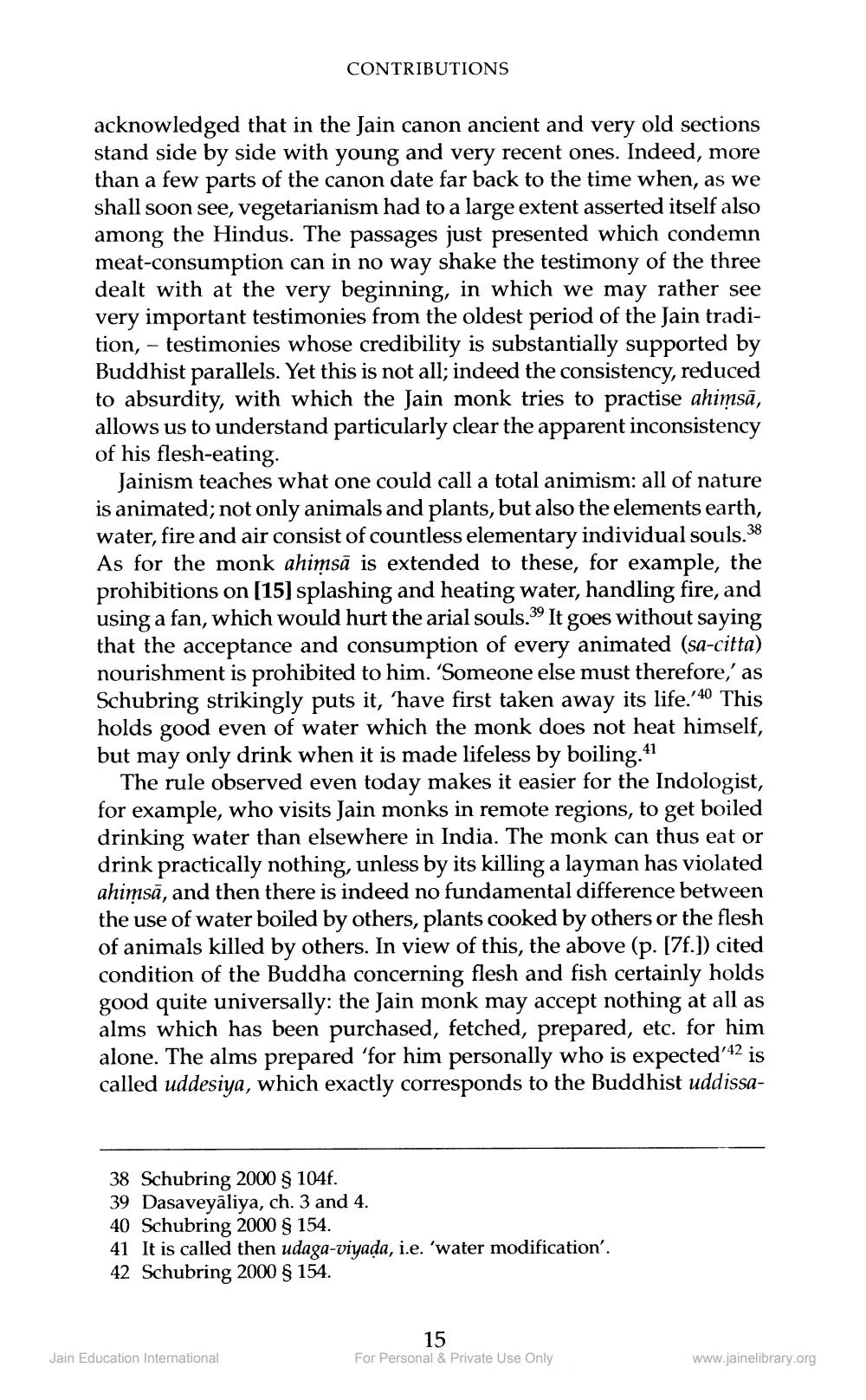________________
CONTRIBUTIONS
acknowledged that in the Jain canon ancient and very old sections stand side by side with young and very recent ones. Indeed, more than a few parts of the canon date far back to the time when, as we shall soon see, vegetarianism had to a large extent asserted itself also among the Hindus. The passages just presented which condemn meat-consumption can in no way shake the testimony of the three dealt with at the very beginning, in which we may rather see very important testimonies from the oldest period of the Jain tradition, - testimonies whose credibility is substantially supported by Buddhist parallels. Yet this is not all; indeed the consistency, reduced to absurdity, with which the Jain monk tries to practise ahimsā, allows us to understand particularly clear the apparent inconsistency of his flesh-eating.
Jainism teaches what one could call a total animism: all of nature is animated; not only animals and plants, but also the elements earth, water, fire and air consist of countless elementary individual souls. 38 As for the monk ahimsā is extended to these, for example, the prohibitions on [15] splashing and heating water, handling fire, and using a fan, which would hurt the arial souls.39 It goes without saying that the acceptance and consumption of every animated (sa-citta) nourishment is prohibited to him. 'Someone else must therefore,' as Schubring strikingly puts it, 'have first taken away its life.'40 This
Ids good even of water which the monk does not heat himself, but may only drink when it is made lifeless by boiling. 41
The rule observed even today makes it easier for the Indologist, for example, who visits lain monks in remote regions, to get boiled drinking water than elsewhere in India. The monk can thus eat or drink practically nothing, unless by its killing a layman has violated ahimsā, and then there is indeed no fundamental difference between the use of water boiled by others, plants cooked by others or the flesh of animals killed by others. In view of this, the above (p. [7f.)) cited condition of the Buddha concerning flesh and fish certainly holds good quite universally: the Jain monk may accept nothing at all as alms which has been purchased, fetched, prepared, etc. for him alone. The alms prepared 'for him personally who is expected42 is called uddesiya, which exactly corresponds to the Buddhist uddissa
holds
38 Schubring 2000 & 104f. 39 Dasaveyāliya, ch. 3 and 4. 40 Schubring 2000 & 154. 41 It is called then udaga-viyada, i.e. 'water modification'. 42 Schubring 2000 & 154.
15 For Personal & Private Use Only
Jain Education International
www.jainelibrary.org




